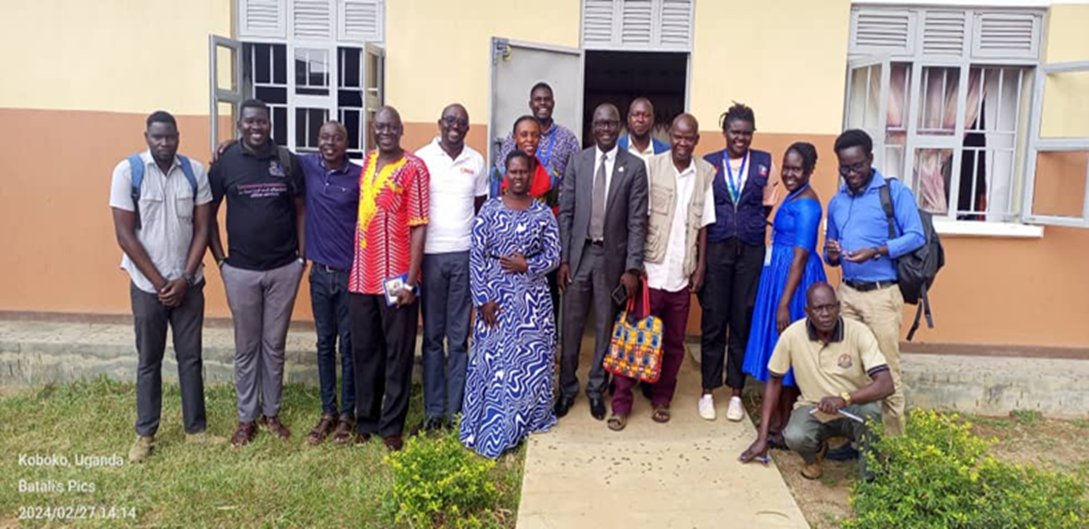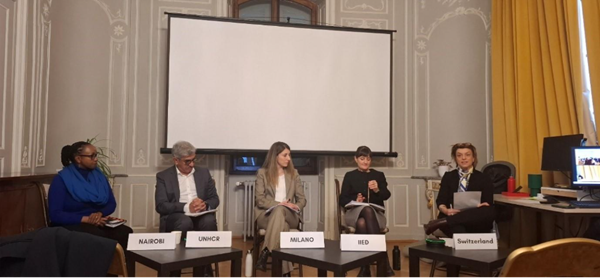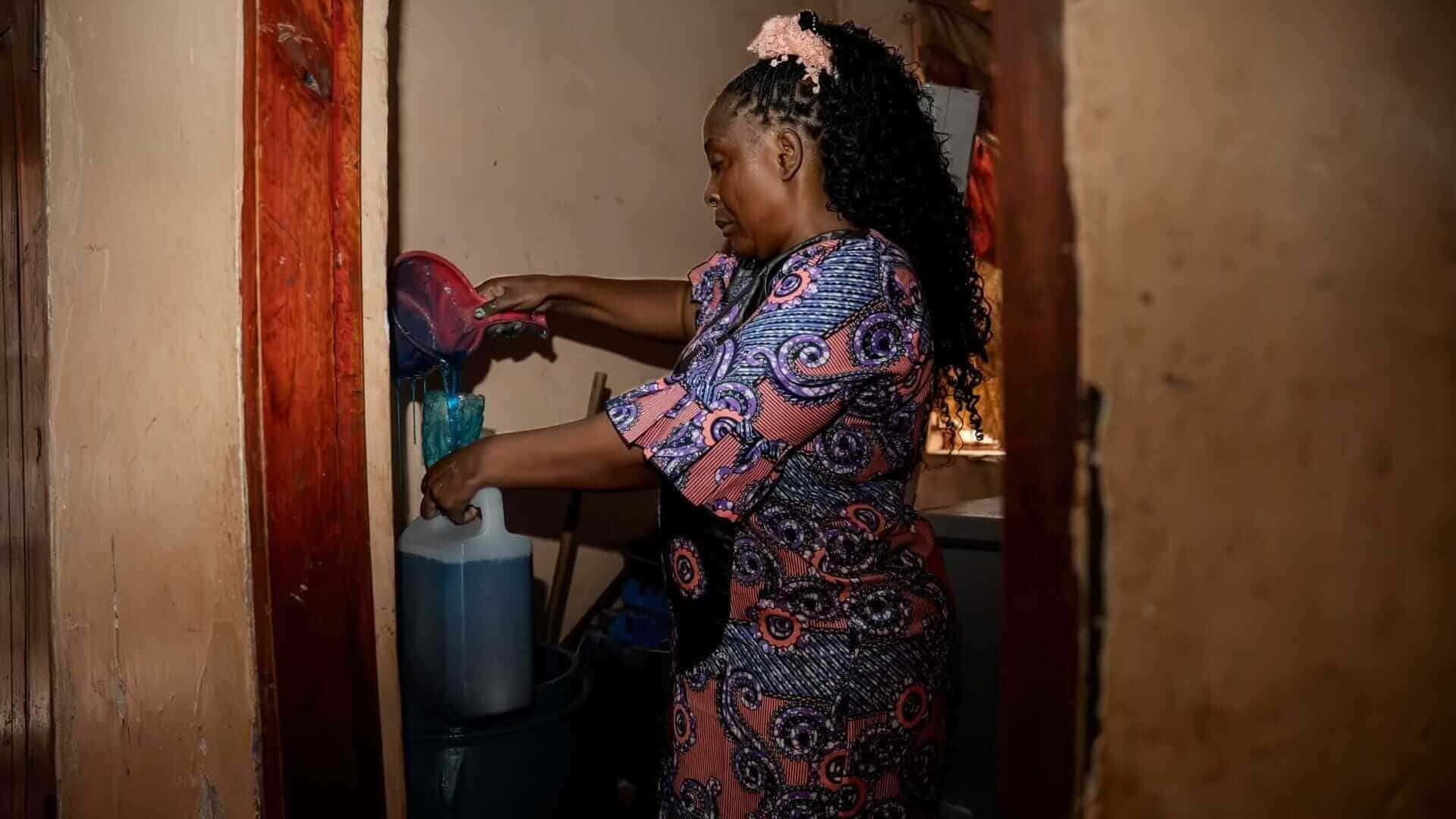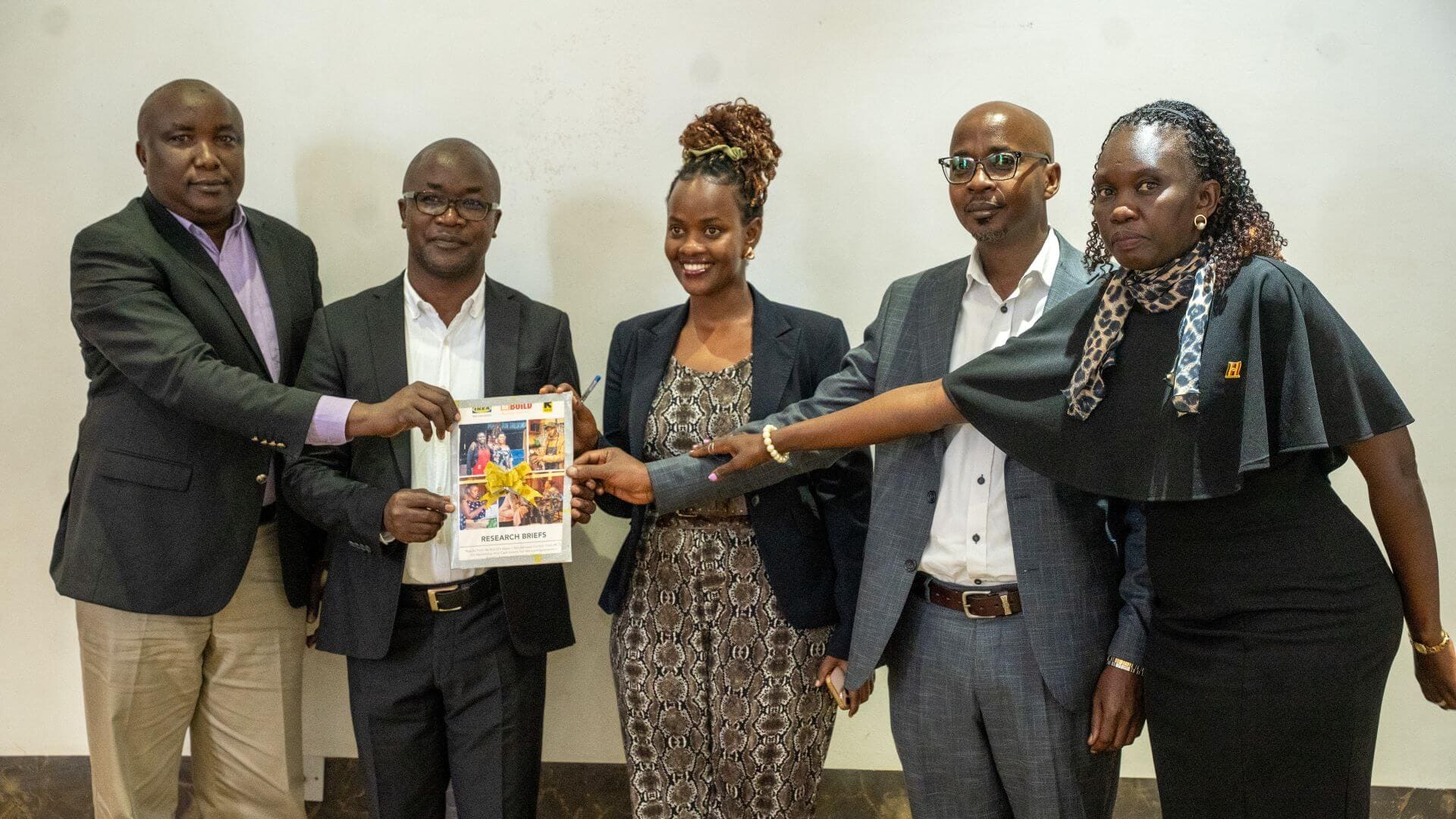Empowering Urban Centers: Lessons from Koboko Municipality's Inclusive Development
Empowering Urban Centers: Lessons from Koboko Municipality's Inclusive Development
Empowering Urban Centers: Lessons from Koboko Municipality's Inclusive Development
By Johnstone Kotut
Koboko Mayor, His Worship Dr. Wilson Sanya, with BUiLD Public Engagement and Advocacy Coordinator Johnstone Kotut, and representatives of Refugee-Led Organizations (RLOs) and civil society groups collaborating with Koboko Municipality. (PHOTO: Koboko/Uganda)
In the heart of Uganda, Koboko Municipality has emerged as a beacon of hope and innovation in managing urban refugee populations. The "Inclusive Urban Development and Mobility in Koboko Municipality" project, funded by the EU Trust Fund for Africa, concluded in October 2023, leaving behind a legacy of impactful strategies and lessons for inclusive urban development. This initiative has not only transformed the lives of over 83,000 residents and refugees but also set a precedent for municipalities worldwide. Here are the key takeaways and actions for future urban development projects.
Collaborative Implementation with Civil Society
Koboko Municipality's approach of forging strategic partnerships with Civil Society Organizations (CSOs) and Refugee-Led Organizations (RLOs) has marked a significant milestone in community development. By allocating sub-grants to these entities, Koboko has not only cultivated trust among stakeholders but also significantly improved the quality-of-service delivery. This collaborative framework has set a robust foundation for ongoing partnerships, showcasing that when municipalities align with CSOs, they can amplify their impact. Such a model is exemplary for other cities aiming to enhance their urban development strategies. Furthermore, this strategy aligns with the goals of the localization agenda discussed at the Global Refugee Forum, advocating for more inclusive and locally-driven solutions in humanitarian efforts. Cities worldwide are encouraged to adopt this inclusive model to strengthen their development initiatives and better serve their communities.
Capacity Building a Pillar of Success
Another foundational element of the project was its emphasis on capacity strengthening, with the Associazione Centro Aiuti Volontari (ACAV) playing a crucial role as the implementing partner responsible for capacity development. This focus led to notable enhancements in the operational capabilities of local organizations, empowering them to manage current projects with greater efficacy and equipping them for forthcoming challenges and opportunities. For cities targeting sustainable development, prioritizing the continuous capacity building of their workforce and partners is essential. Ensuring that the necessary organizational structures and policies are in place for effective functioning is pivotal for long-term success.
Supporting Refugees through Physical Office Spaces
Koboko Municipality implemented an innovative strategy by providing physical office spaces within a municipal facility to the South Sudanese and Congolese refugee associations, SSURA and CORA, respectively. These associations were allocated office spaces within the municipality's counseling and trauma center, which operates with experienced counselors drawn from both the host and refugee populations. This arrangement significantly enhanced coordination, documentation, and the provision of support services for refugees, underscoring the profound advantages of promoting close collaboration between city authorities and refugee communities. Urban areas with large refugee populations could greatly benefit from adopting this model to improve the efficacy of their support systems, ensuring refugees have access to the necessary assistance in an organized and approachable framework. This initiative not only facilitates immediate aid to refugee populations but also showcases a commitment to inclusivity and community integration within the realm of urban planning and development.
Data-Driven Decision Making
The project underscored the value of accurate data in planning and resource allocation. A survey conducted with the support of the Netherlands Association of Local Authorities (VNG) enabled Koboko to make informed decisions regarding the needs of the refugee population. This highlights the necessity for urban authorities to invest in data collection and analysis, ensuring that their actions are guided by the real needs of their communities.
Direct Donor Support: Meaningful lesson
Perhaps one of the most crucial lessons from Koboko is the effectiveness of direct donor support to municipalities. This approach not only streamlined resource allocation but also built the capacity of local authorities to manage funds efficiently. As Koboko Municipality looks forward to a second round of funding, it serves as a powerful example for other cities to advocate for direct donor investment in urban development projects.
Koboko Municipality's journey through the "Inclusive Urban Development and Mobility" project is a testament to what can be achieved when urban areas are empowered to take charge of their development agendas. By fostering partnerships, building capacities, providing physical spaces for collaboration, focusing on data-driven planning, and securing direct donor support, cities can create more inclusive, sustainable, and resilient urban environments. As we move forward, let Koboko's experience inspire other municipalities to embrace these strategies, ensuring that urban centers worldwide can become havens of opportunity and inclusivity for all, including the refugee populations they host.


